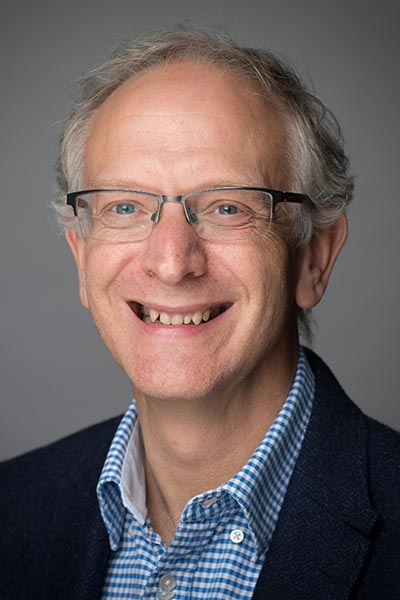For many years, the cellular basis for most inflammatory diseases has remained enigmatic to researchers hoping to improve the care of patients living with debilitating symptoms on a daily basis. That could be changing quickly, though, according to Christopher Buckley, MD, PhD, who will deliver this year’s Paul Klemperer, MD, Memorial Lecture on Monday, November 14, from 12–1 p.m. ET.

He will discuss the Human Cell Atlas (HCA), an international group of cartographers working to create cellular reference maps of the position, function, and characteristics of every cell type in the human body. These comprehensive maps could theoretically become a basis for diagnosing, monitoring, and treating musculoskeletal diseases.
Meeting participants have the option to attend the session in person in Terrace Ballroom IV of the Pennsylvania Convention Center or on the meeting website via livestream, or to view the session on demand.
“Imagine you were a chemist and you didn’t know the periodic table,” said Dr. Buckley, Director of Clinical Research at the Kennedy Institute of Rheumatology, University of Oxford, United Kingdom. “That’s the position many clinicians face in the 21st century, not knowing the cellular basis of the diseases they study.”
With the HCA’s data, researchers can identify common cell types across organs, along with those that appear only within specific organs. Returning to the analogy of the periodic table, these common cell types would be like carbon, which is present in all forms of life. Once those commonalities are identified, researchers can then focus on cell types that are unique to organs or even joints. These commonalities across different areas of the body are important because they might explain why some diseases involve more than one organ.
“Our patients often ask us, ‘I’ve come here with pain in my joints. Why are you asking me if I have issues with my eyes, bowels, urogenital tract, or skin?’” Dr. Buckley said. “I’ll say to them, ‘If you have a particular type of arthritis, you might have problems with your skin, eyes, or guts.’ We’ve known that for years, but what is the cellular basis of that knowledge?”
Unlocking the cellular basis of disease will allow providers to answer these vital questions while implementing accelerated treatment plans that address the underlying cellular pathologies of their patients, he said.
Using the Arthritis Therapy Acceleration Programme as an example, Dr. Buckley will illustrate how the HCA can be used to accelerate treatments. He will cover the clinical and pathological features of inflammation and explain how inflammation, resolution, damage, and repair relate to one another. He also will delve into the cell types that make up a joint and how they become maladapted in disease.
“I always envy those practitioners who can be causal practitioners, as opposed to correlative ones,” Dr. Buckley said. “This is really important for rheumatology because, with the exception of gout and some other metabolic bone diseases, we don’t know the cellular cause of most of the diseases we deal with as rheumatologists.”
While Dr. Buckley will focus on a specific application for the HCA, he believes the group’s work could lead to more cohesive collaboration across the medical field to create expedited progress on patient treatments.
“This session is designed for all comers because it’s trying to break down boundaries between specialties and subspecialties,” Dr. Buckley explained. “I think that has been a problem with medicine. It has become so focused on certain specialties that it can actually miss the bigger questions and problems that matter to people with diseases of the musculoskeletal system.”

Registered ACR Convergence 2024 Participants:
Watch the Replay
Select ACR Convergence 2024 scientific sessions are available to registered participants for on-demand viewing through October 10, 2025. Log in to the meeting website to continue your ACR Convergence experience.
